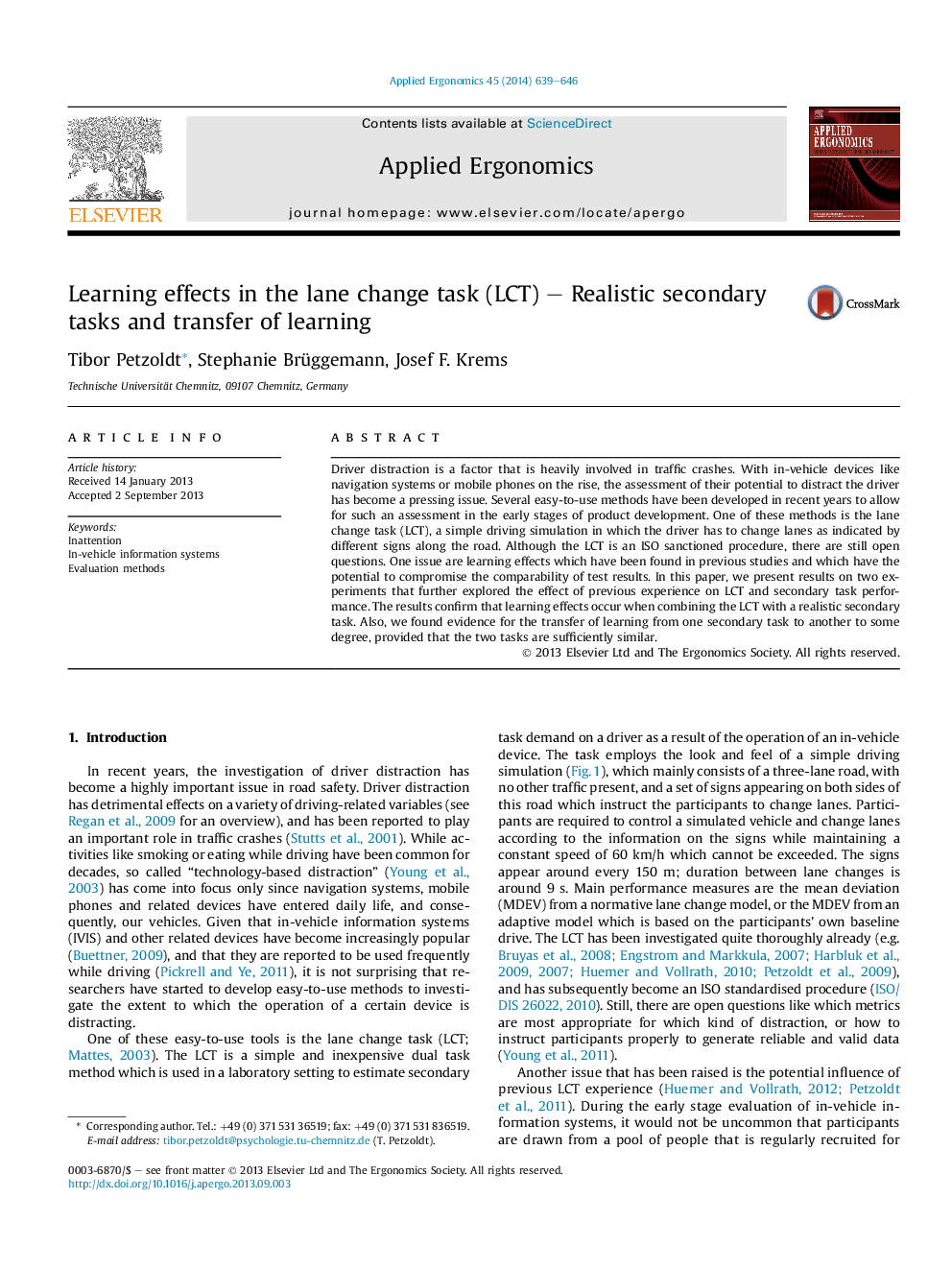| کد مقاله | کد نشریه | سال انتشار | مقاله انگلیسی | نسخه تمام متن |
|---|---|---|---|---|
| 551108 | 872792 | 2014 | 8 صفحه PDF | دانلود رایگان |

• Lane change task's (LCT) sensitivity towards learning effects was examined.
• Repeated use of same LCT/secondary task combination resulted in increased performance.
• Limited transfer of learning was confirmed for sufficiently similar secondary tasks.
• Results point to limitations of LCT as standardized assessment procedure.
• The LCT's sensitivity towards learning effects is interesting for research purposes.
Driver distraction is a factor that is heavily involved in traffic crashes. With in-vehicle devices like navigation systems or mobile phones on the rise, the assessment of their potential to distract the driver has become a pressing issue. Several easy-to-use methods have been developed in recent years to allow for such an assessment in the early stages of product development. One of these methods is the lane change task (LCT), a simple driving simulation in which the driver has to change lanes as indicated by different signs along the road. Although the LCT is an ISO sanctioned procedure, there are still open questions. One issue are learning effects which have been found in previous studies and which have the potential to compromise the comparability of test results. In this paper, we present results on two experiments that further explored the effect of previous experience on LCT and secondary task performance. The results confirm that learning effects occur when combining the LCT with a realistic secondary task. Also, we found evidence for the transfer of learning from one secondary task to another to some degree, provided that the two tasks are sufficiently similar.
Journal: Applied Ergonomics - Volume 45, Issue 3, May 2014, Pages 639–646